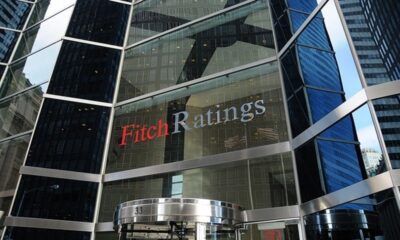Fitch Ratings Affirms Bogotá’s Credit Rating at BBB with Stable Outlook
Fitch Ratings has affirmed Bogotá’s credit rating at BBB with a stable outlook. Both the rating and outlook remain unchanged since the New York-based credit rating agency improved the city’s outlook from negative to stable in March, a move that followed the same revision for Colombia’s sovereign outlook.
The outlooks for both the country and the capital were improved after a tax reform was passed late last year. Among other changes, the overhaul increased the value-added tax (VAT) in Colombia from 16% to 19% to help shore up a federal budget that had been badly strained by two years of low oil prices and declining revenues from the sector.
In the capital, Mayor Enrique Peñalosa’s “Mejor para Todos” development plan — led by a proposal to construct an elevated metro system — has led to increased debt. On top of the metro, Bogotá has planned to expand its Transmilenio rapid bus system in a move to further address the massive traffic problems in the capital as well as build 30 new schools and six hospitals.
To pay for it all, the administration has implemented a “financing strategy of growing tax revenues, current transfers, capital revenues, and debt,” stated Fitch Ratings. But from a fiscal standpoint, more than half of Bogotá’s debt is currently dominated in local currency, and the rating agency is encouraged by the fact that the related risks of this debt — the exchange rate, interest rate fluctuations, and liquidity levels — are “all watched closely” by the government.
“Bogota’s ratings reflect its solid operating performance and its manageable debt levels, including a significant increase in debt to cover its development plan,” said Fitch in a statement. “The district’s strong socioeconomic profile and weight in the national economy in terms of GDP contribution are also considered in the affirmation.”
Fitch also noted that, in addition to the roughly $2.3 billion USD (7 trillion pesos) of already approved funds for the plan, Bogotá is weighing the idea of taking on another $790 million (2.4 trillion pesos) of debt. If this comes to fruition, “Fitch will consider the debt incurred, forecasting an increase in its debt indicators over the next years that is still compatible with the current rating of the district, given its sound operating performance and strong liquidity,” said the agency.
A positive sign comes in the form of increasing taxes coming into the city, which at almost $2.5 billion USD last year represented a 6.8% growth over the 2015 level and accounted for nearly two-thirds (65%) of Bogotá’s revenue. The pace of growth in 2016 was actually slower than the rates above 8% seen each year from 2011 to 2015, noted Fitch, but the increase still highlights Bogotá’s “good track record of tax collection” and “sound economy.”
The rating agency also offered an assessment of Bogotá’s operating margin, which decreased in 2016 due to higher spending. “Overall, the district recorded a good fiscal and financial performance with an operating balance of 26.5% of its operating revenue,” stated the agency. “Fitch estimates that the operating margin will overcome 20% of operating revenues. Such operating margin compares favorably with international standards and is in accordance with the risk level assigned.”
In terms of specific ratings for Bogotá, Fitch Ratings affirmed the BBB rating and stable outlook for the city’s long-term foreign currency issuer default rating (IDR) and long-term local currency IDR. It also affirmed the long-term national rating at AAA (col), short-term national rating at F1+ (col), $300 million USD equivalent, 9.75% Colombian peso-denominated notes due 2028 at BBB, and COP2,000,000 million notes at AAA (col)
























